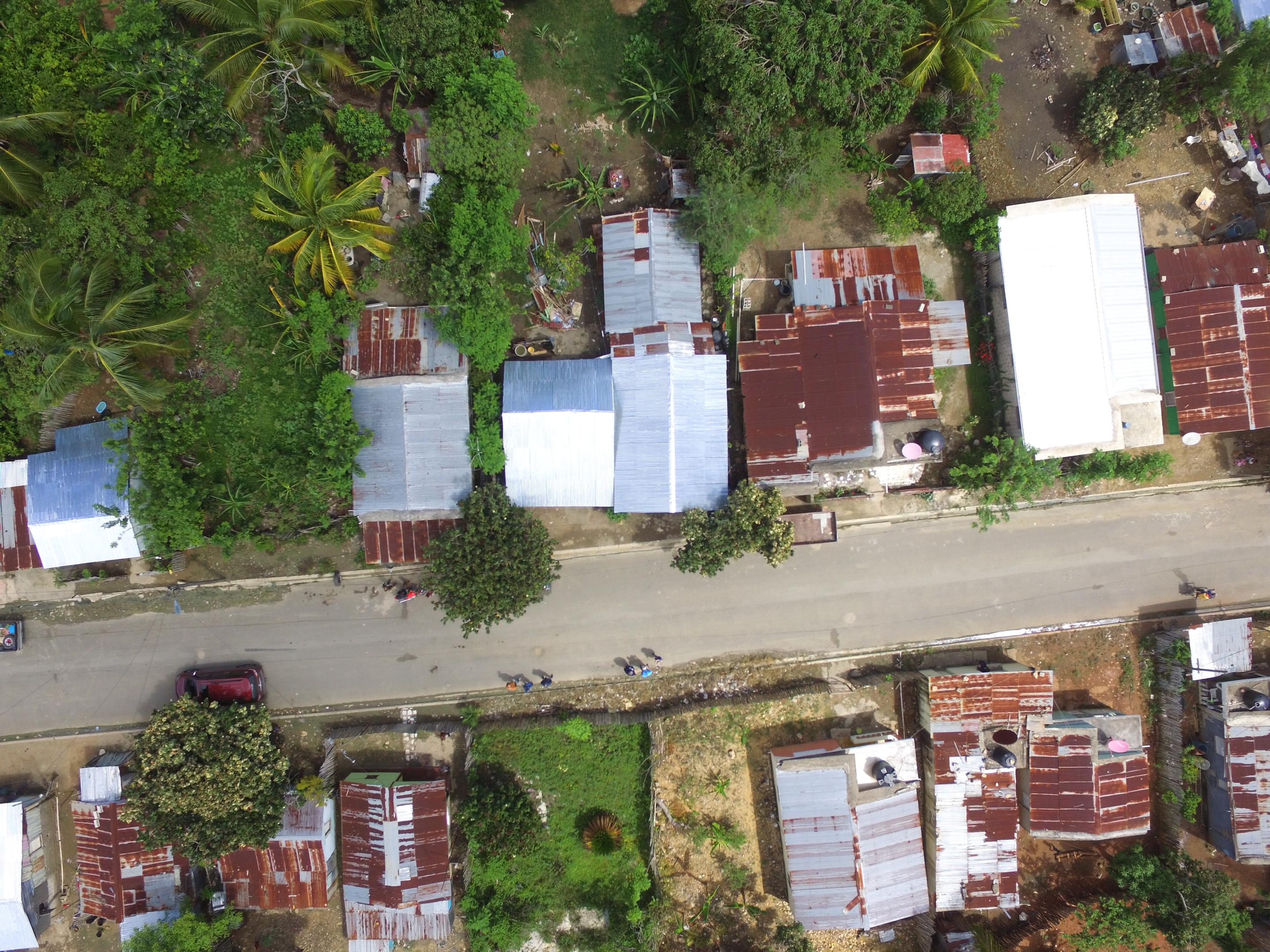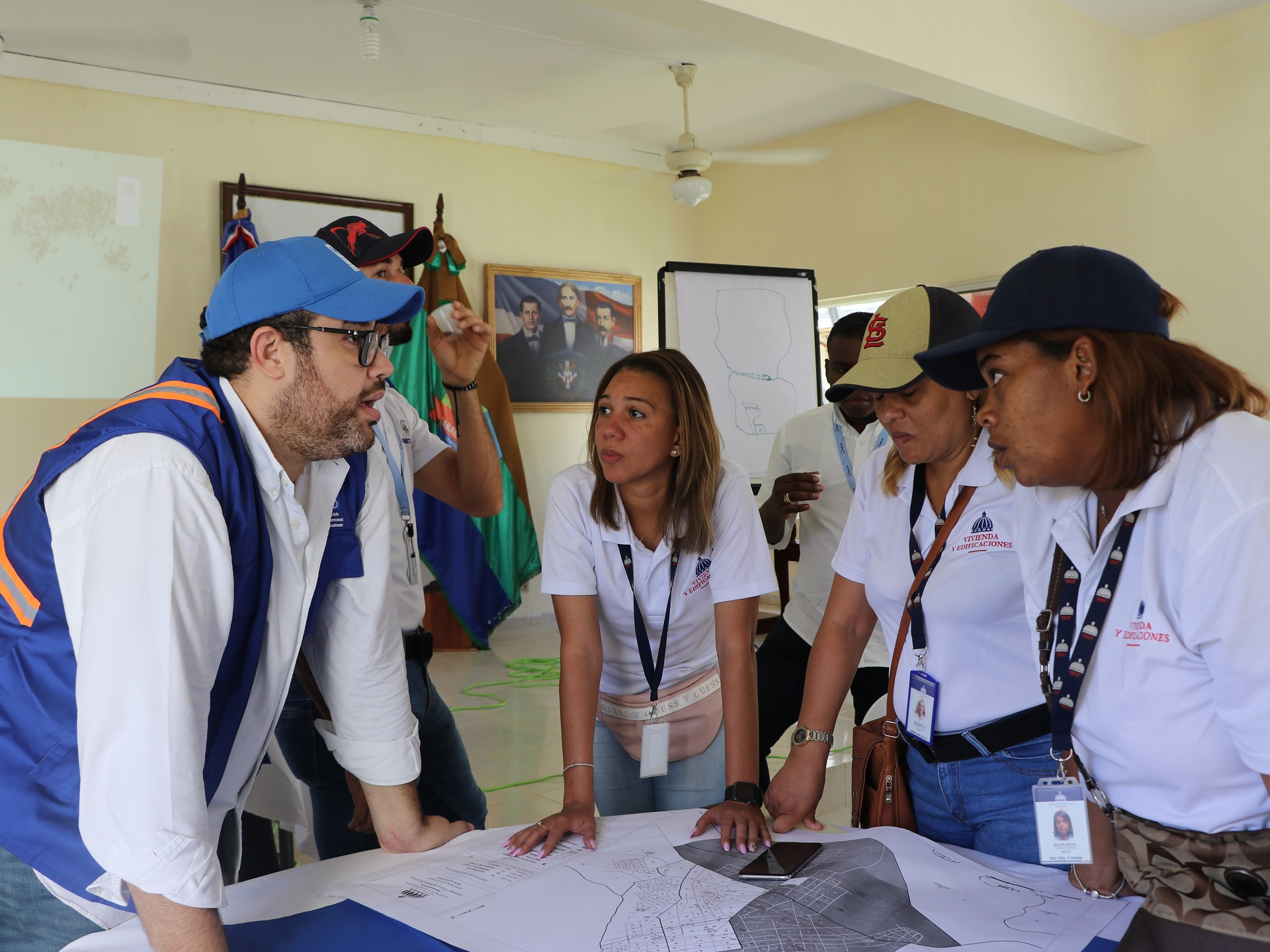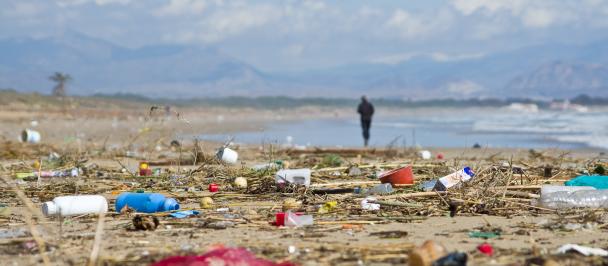Resilient human development: Lessons from the Dominican Republic
April 25, 2024
By addressing housing vulnerabilities and integrating systemic approaches, UNDP has shown how proactive measures can protect communities.
In our interconnected world, the nexus between poverty, inequality, and disasters presents a complex challenge. This intricate relationship involves economic, social, political, and cultural factors that interact with environmental conditions, influencing communities' vulnerability to natural disasters. Over the years, UNDP has highlighted these issues in Human Development Reports, urging attention and action.
During disasters, the poor are often hit the hardest due to their location and limited resources, exacerbating existing inequalities. Incomplete responses can deepen poverty and roll back human development. Understanding this complexity is crucial for effective risk management and vulnerability reduction strategies.
One example is Sabana de la Mar municipality in the Dominican Republic. By addressing housing vulnerabilities and integrating systemic approaches, UNDP has shown how proactive measures can protect communities from the adverse impact of disasters.
After Hurricane Fiona, at the request of the Ministry of Housing, Habitat, and Buildings, UNDP worked in conjunction with the government and civil society to assess damages to over 2,500 zinc-roofed homes. This was conducted using UNDP's global tool for measuring damages to homes and buildings (HBDA), which quickly identified the damages caused by Fiona and assessed the socio-economic situation of households.

A recovery strategy focused on increasing Sabana de la Mar's resilience in municipal governance, economic resilience, and resilience of the affected homes.

UNDP works with local government to strengthen the municipal committee for prevention, mitigation, and response, as well as providing basic rescue equipment.
Based on this, a recovery strategy was developed focusing on increasing Sabana de la Mar's resilience in three key areas; municipal governance, economic resilience, and resilience of the affected homes.
We worked with local government to strengthen the municipal committee for prevention, mitigation, and response, as well as providing basic rescue equipment to Civil Defense. In this process, the municipality was also supported in forming the Economic and Social Council of the municipality and formulating the Municipal Development Plan, aligned with the Sustainable Development Goals and the National Development Strategy 2030, considering the impact of COVID-19 and Hurricane Fiona.
The second area focused on economic resilience aimed at fostering the economic recovery through livelihood support using UNDP's regional programme "En Marcha," which strengthened 54 small businesses, mostly owned by women, improving their entrepreneurial capacities and competitiveness. This included group training, personalized confidential counseling, digital strategies, and business renovation, leading to improvements in sales, as well as support through seed capital.
The third area aimed to reduce existing risks and strengthen community resilience through improvements in the infrastructure of homes. UNDP, in partnership with Habitat for Humanity Dominican Republic, improved walls, roofs, and electrical installations of 20 homes affected by the hurricane and constructed three new homes, training community builders in home repairs that are more hurricane resistant.

After Hurricane Fiona, at the request of the Ministry of Housing, Habitat, and Buildings, UNDP worked with the government and civil society to assess damages to over 2,500 zinc-roofed homes.
UNDP has put its capacity for rapid response, global mechanisms, and international expertise at the service of the country to provide concrete support. This includes data collection and early assessments for financing and recovery, complementing humanitarian response, as well as maintaining basic services, job recovery, housing assessment and reconstruction, strengthening social protection, and digital transformation. It has also served to set a public policy, as the Dominican government intends to extend this model to other municipalities.
This approach puts people first, breaking the cycle of fragility. It aligns with the broader UN framework for disaster response and recovery, demonstrating a commitment to leaving no one behind.
The climate crisis further emphasizes the need for resilient human development. As extreme weather becomes more frequent and intense, countries like the Dominican Republic face significant challenges in sustaining their human development progress.
The success in Sabana de la Mar has served to establish a plan for addressing vulnerability and building resilience on a larger scale. The National Ministry of Households plans to implement this model to benefit an initial 178 households as part of their national strategy. By innovating and staying ahead of the curve, we can continue to play a vital role in shaping policies and strategies that protect human development advancements and ensure a more sustainable future for all.

 Locations
Locations
